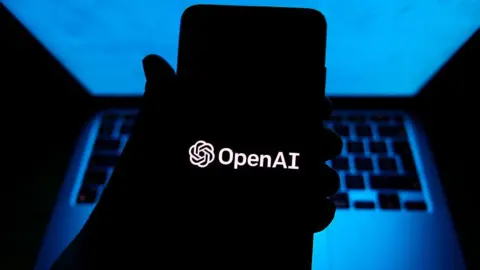OpenAI, the renowned firm best known for creating the transformative AI language model ChatGPT, has recently formalized an agreement with the United Kingdom government to leverage artificial intelligence in enhancing productivity across its public services. The announcement highlights a significant collaboration aimed at integrating OpenAI’s advanced technology within various sectors of the UK government, signaling a decisive move towards modernizing public services through AI.
The memorandum of understanding between OpenAI and the UK’s science department opens up the possibility for access to sensitive government data, which may facilitate the application of OpenAI’s software in key areas such as education, national defense, security, and the judicial system. Technology Secretary Peter Kyle emphasized that “AI will be fundamental in driving change” in the UK, underlining its potential role in spurring economic growth and improving efficiencies within public operations.
This initiative’s rapid adoption has faced scrutiny, particularly from musicians and concerned advocates who voice their opposition to the unlicensed use of creative works by AI systems. These critics argue that the integration of AI must also consider the ethical implications associated with intellectual property rights and the creative livelihoods of artists.
In the official documentation, the agreement articulates that the UK and OpenAI will work towards “improving understanding of capabilities and security risks” while putting measures in place to mitigate any identified risks. There is also a plan for establishing an “information sharing programme” that would develop safeguards ensuring the protection of public interests and preservation of democratic values, an assertion that reflects awareness of the potential ramifications of deploying AI technologies.
Sam Altman, the chief executive of OpenAI, claimed that this partnership will “deliver prosperity for all.” He argued that AI represents a core technology essential for nation building, positing that it can reshape economies and facilitate sustainable growth. This sentiment aligns with the UK government’s urgent need to revitalize an economy that has been underperforming, with recent forecasts indicating growth rates hovering between a meager 0.1% and 0.2% for the period of April to June.
The UK government is actively seeking to attract investments in the AI sector, having established similar agreements with rival companies like Google and Anthropic earlier this year. The administration has made it clear that it is open to foreign investments in AI, with this latest deal potentially fostering the development of groundbreaking AI technologies within the UK that could lead to impactful discoveries benefiting the economy.
Generative AI technologies, particularly models like ChatGPT, have shown remarkable capabilities in producing a diverse array of outputs, including text, images, videos, and even music, simply by processing user prompts. However, this technology raises significant concerns regarding data use, especially related to copyright infringement and the handling of creative content. Critics have pointed out instances where AI systems propagated misinformation or delivered inadequate advice based on flawed or ambiguous input.
The overarching narrative around OpenAI’s deal with the UK government encapsulates a pivotal moment in the evolution of public services in the digital age. While it presents opportunities for revolutionary advancements, it simultaneously calls for rigorous examinations of ethical standards and regulatory frameworks surrounding AI technologies. These discussions will be critical as the UK embeds AI deeper into its governance structures, ensuring that the transformative potential of AI aligns with the broader interests of society while protecting the rights of creators and citizens alike.
As the landscape of work and creativity continues to evolve alongside AI, the stakes are high for all involved. The need for balanced approaches that embrace innovation while safeguarding fundamental rights will be indispensable as the UK forges ahead with its ambitions in artificial intelligence.











